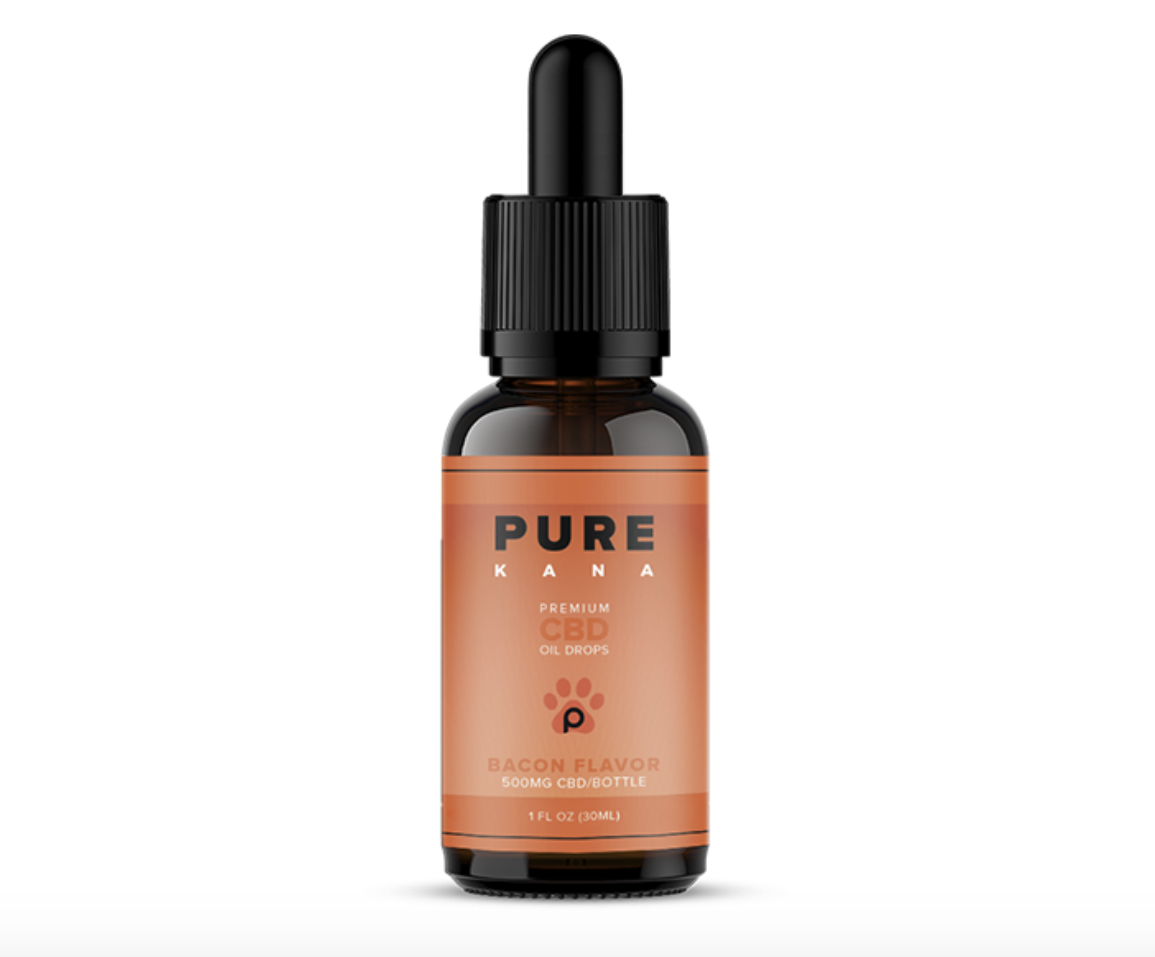In our fast-paced world, stress has become almost universal. Stress can significantly affect our physical and mental well-being, whether it’s work pressures, personal challenges, or the constant barrage of information from our digital lives.
As more people seek natural ways to manage stress, CBD, or cannabidiol, has emerged as a promising solution. Derived from the hemp plant, CBD is known for its calming effects without the psychoactive properties associated with THC, making it an appealing option for those looking to relieve stress naturally. This article delves into the science-based benefits of CBD for stress relief, exploring how it works in the body, its potential advantages, and the evidence supporting its use.
How CBD Interacts with the Body to Relieve Stress
Understanding how CBD works in the body is essential to appreciating its potential as a stress reliever. CBD interacts with the endocannabinoid system (ECS), a complex network of receptors, enzymes, and endocannabinoids that is critical in regulating various physiological processes, including mood, stress response, and overall homeostasis. The ECS is present throughout the body, with receptors found in the brain, immune system, and other organs, making it a key player in maintaining balance within the body.
CBD primarily interacts with two types of receptors in the ECS: CB1 receptors, predominantly located in the brain and central nervous system, and CB2 receptors, more common in the immune system and peripheral tissues. Unlike THC, which directly binds to these receptors and produces psychoactive effects, CBD has a more indirect influence. It modulates the activity of these receptors and enhances the body’s natural production of endocannabinoids, particularly anandamide, often referred to as the “bliss molecule.” By increasing levels of anandamide and other endocannabinoids, CBD helps to promote a sense of calm and well-being, counteracting the effects of stress.
In addition to its interaction with the ECS, CBD also influences other neurotransmitter systems in the brain that are associated with stress and anxiety. For example, CBD has been shown to enhance the activity of serotonin receptors. Serotonin is a neurotransmitter that plays a crucial role in mood regulation and is often targeted by conventional antidepressants. By promoting serotonin activity, CBD may help to alleviate feelings of stress and anxiety, offering a natural alternative to pharmaceutical options.
Moreover, CBD’s impact on the body’s stress response is not limited to the brain. Research suggests that CBD can reduce the physiological symptoms of stress, such as elevated heart rate and blood pressure. In one study, participants who were given CBD before a stressful public speaking task exhibited lower levels of anxiety and discomfort compared to those who received a placebo. This calming effect on the body’s stress response is part of what makes CBD a promising tool for managing stress in everyday life.
CBD’s interaction with the endocannabinoid system and its influence on other neurotransmitter systems provide a strong scientific basis for its potential as a stress-relieving compound. By promoting balance within the body and reducing both psychological and physiological symptoms of stress, CBD offers a holistic approach to stress management that is rooted in our body’s natural processes.
The Science-Backed Benefits of CBD for Stress
As interest in CBD grows, so does the body of research supporting its use for stress relief. While much of the evidence comes from preclinical studies and small-scale human trials, the findings are encouraging and suggest that CBD could be a valuable addition to our stress-management toolkit. Let’s explore some of the key science-based benefits of CBD for stress.
One of the most well-documented benefits of CBD is its ability to reduce anxiety, which is often closely linked to stress. Several studies have demonstrated that CBD can help to alleviate both generalized anxiety and specific anxiety disorders. For instance, a 2019 study published in The Permanente Journal investigated the effects of CBD on 72 adults with anxiety and sleep issues. The results showed that after just one month of taking CBD, 79.2% of participants reported decreased anxiety levels, and 66.7% experienced improved sleep. These findings highlight CBD’s potential to address two of the most common consequences of chronic stress: anxiety and sleep disturbances.
Beyond its anxiolytic effects, CBD has also been shown to mitigate the impact of stress on the body’s physiological systems. Chronic stress is known to elevate cortisol levels, a hormone that, when persistently high, can lead to a range of health issues, including weight gain, immune suppression, and cardiovascular problems. Some research suggests that CBD may help to regulate cortisol production, thereby reducing the harmful effects of long-term stress. In a study conducted on animals, CBD attenuated the rise in cortisol levels typically seen in response to stress, indicating its potential to protect the body from stress-induced damage.
Furthermore, CBD’s anti-inflammatory properties may also influence its stress-relieving benefits. Chronic stress can trigger inflammation in the body, which is linked to a variety of health conditions, including depression, heart disease, and autoimmune disorders. By reducing inflammation, CBD may help to counteract some of the negative physical effects of stress, supporting overall health and well-being. This is particularly relevant for individuals who experience stress-related physical symptoms, such as headaches, muscle tension, or digestive issues.
Another area of research that supports the use of CBD for stress relief is its neuroprotective properties. Chronic stress can have a detrimental impact on the brain, leading to issues such as cognitive decline, memory problems, and an increased risk of mental health disorders. CBD has been shown to promote neurogenesis (the growth of new neurons) and protect existing brain cells from damage, which could help mitigate some of the cognitive and emotional tolls of long-term stress.
In conclusion, the science-backed benefits of CBD for stress are broad and compelling. From reducing anxiety and regulating cortisol levels to combating inflammation and protecting the brain, CBD offers a multifaceted approach to managing stress that is supported by a growing body of research. While more large-scale studies are needed to understand its effects fully, the current evidence suggests that CBD could be a valuable tool for those looking to alleviate stress naturally.
How to Use CBD for Stress Relief: Dosage, Methods, and Considerations
If you’re considering using CBD to manage stress, it’s important to understand how to use it effectively. Like any supplement, the benefits of CBD can vary depending on the dosage, method of consumption, and individual factors such as body weight, metabolism, and the severity of your stress. Here, we’ll explore the best practices for using CBD for stress relief, including dosage recommendations, the different ways to consume CBD, and some important considerations to remember.
There is no one-size-fits-all answer regarding dosage, as the optimal CBD dose can vary widely from person to person. However, a common starting point is to begin with a low dose—5 to 10 mg of CBD per day—and gradually increase it until you find the best dosage. It’s important to start low and go slow, as this allows you to gauge your body’s response to CBD and minimize the risk of side effects. Some individuals may find relief with as little as 10 mg per day, while others may require higher doses, such as 50 mg or more, to achieve the desired effects.
There are several methods for consuming CBD products, like CBD gummies for stress, each with its own advantages and considerations. Sublingual tinctures are a popular option, as they allow for quick absorption of CBD into the bloodstream by placing a few drops under the tongue. This method typically produces effects within 15 to 30 minutes and can be a convenient option for those looking for fast relief from stress. Another option is CBD capsules or edibles, which offer a discreet and easy way to consume CBD. However, these methods may take longer to produce effects—usually around 30 minutes to 2 hours—since the CBD must pass through the digestive system before entering the bloodstream.
For those seeking localized relief, such as tension in the neck or shoulders, CBD topicals like creams, balms, or patches can be applied directly to the affected area. While topicals don’t enter the bloodstream, they can provide targeted relief by interacting with cannabinoid receptors in the skin. This makes them an excellent option for addressing stress-related muscle tension or pain.
Inhalation methods, such as vaping or smoking CBD flower, offer the fastest onset of effects, typically within minutes. However, these methods may not be suitable for everyone, especially those with respiratory issues or concerns about the long-term effects of inhaling vapor or smoke. It’s important to weigh the pros and cons of each method and choose the one that best fits your lifestyle and needs.
When using CBD for stress relief, it’s also essential to consider the quality of your product.
Not all CBD products are created equal, and the market is filled with products of varying quality. Look for products that have been third-party tested for purity and potency, and choose those made from organically grown hemp to ensure you’re getting a clean, high-quality product. Additionally, consider whether you prefer full-spectrum CBD, which contains a range of cannabinoids and terpenes, or CBD isolate, which contains only pure CBD. Full-spectrum products are thought to offer enhanced benefits due to the “entourage effect,” where the various compounds in hemp work together synergistically.
In summary, using CBD for stress relief involves finding the right dosage and method of consumption that works for you. Whether you prefer tinctures, edibles, topicals, or inhalation, the key is to start with a low dose and gradually increase it as needed. By choosing high-quality products and paying attention to your body’s response, you can optimize the benefits of CBD and find relief from stress naturally and effectively.


















